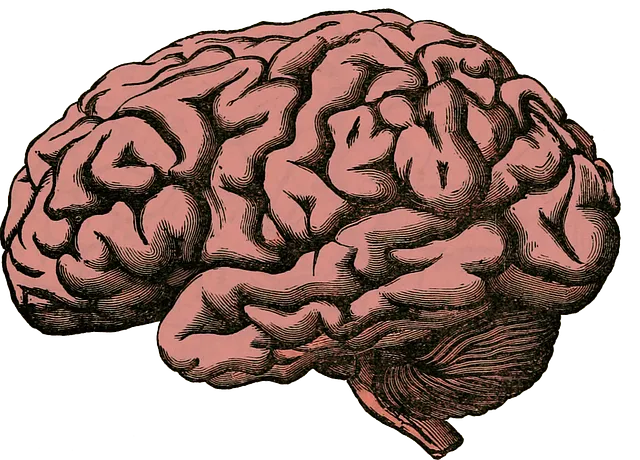The Kaiser Permanente mental health center in Westminster employs a patient-centered approach, integrating empathy building and compassion cultivation practices into daily care. They utilize a robust evaluation process combining quantitative and qualitative methods, including structured questionnaires, client feedback, risk assessments for staff well-being, and community outreach programs. Participant feedback from surveys, focus groups, and interviews helps strengthen program evaluation and develop tailored initiatives for depression prevention. The center tracks changes in community stress levels, emotional intelligence, and self-awareness through pre-post surveys, focusing on the impact of workshops and sessions. This continuous improvement strategy ensures optimal mental wellness promotion aligned with evolving community needs.
“Explore the comprehensive evaluation methods employed by the Kaiser Permanente Mental Health Center in Westminster, a model program that prioritizes holistic mental wellness. This article delves into their strategic approach, focusing on tools and techniques used to assess program effectiveness, including participant feedback integration. We examine how the center measures its impact on community well-being and emphasizes continuous improvement through iterative programs. By learning from this innovative model, mental health organizations can enhance their services and positively influence society.”
- Understanding the Kaiser Permanente Mental Health Center Westminster Model
- Assessing Program Effectiveness: Tools and Techniques Employed by KP
- Participant Feedback: A Crucial Component of Evaluation
- Measuring Impact on Community Well-being
- Continuous Improvement: Iterating Programs for Optimal Results
Understanding the Kaiser Permanente Mental Health Center Westminster Model

The Kaiser Permanente Mental Health Center Westminster Model exemplifies a comprehensive approach to mental wellness program evaluation. This model prioritizes patient-centered care, integrating Empathy Building Strategies and Compassion Cultivation Practices into daily interactions. By fostering strong relationships and creating a supportive environment, the center aims to enhance patients’ sense of belonging and encourage Inner Strength Development.
The evaluation methods at Kaiser Permanente Westminster are designed to track progress, measure treatment effectiveness, and continuously improve services. Through regular assessments, feedback collection from both patients and staff, and data analysis, the center ensures that its programs align with the evolving needs of its community. This rigorous yet patient-centric approach sets a benchmark for mental health care, demonstrating Kaiser Permanente’s commitment to delivering high-quality, compassionate, and impactful services.
Assessing Program Effectiveness: Tools and Techniques Employed by KP

At the Kaiser Permanente mental health center Westminster, evaluating program effectiveness is a multifaceted process that incorporates diverse tools and techniques. The organization leverages structured questionnaires and client feedback to gauge satisfaction levels and track improvements in mental health outcomes. These assessments often include validated scales that measure symptoms of anxiety, depression, and stress reduction methods employed within the program. By collecting quantitative data through surveys and qualitative insights from individual therapy sessions, KP Westminster gains valuable insights into the impact of their services.
Additionally, risk assessment for mental health professionals plays a crucial role in program evaluation. The center employs structured interviews and case reviews to monitor staff well-being and identify potential risks or burnout. This proactive approach ensures that trauma support services are readily accessible within the organization, fostering an environment where mental wellness is prioritized not just for clients but also for care providers. These comprehensive evaluation methods allow KP Westminster to continuously refine its programs, ensuring they remain effective and responsive to the evolving needs of their community.
Participant Feedback: A Crucial Component of Evaluation

Participant feedback is an indispensable element of evaluating mental wellness programs, offering valuable insights into their effectiveness and impact. At the Kaiser Permanente mental health center in Westminster, for instance, patient opinions are sought through various channels such as surveys, focus groups, and one-on-one interviews. This feedback loop is essential for understanding what aspects of the program resonate with participants, what improvements are needed, and how to better tailor services to meet their unique needs. By actively incorporating participant voices, the center can enhance its mental wellness initiatives, ensuring they remain relevant, accessible, and impactful in supporting individuals on their journey towards improved mental health, specifically in depression prevention efforts.
Community outreach program implementation also benefits from this feedback mechanism. Engaging with participants directly helps identify barriers to accessing services, cultural considerations, and preferences for delivery methods. This knowledge is crucial for expanding community outreach initiatives, making them more inclusive and effective in reaching those who need support. Thus, participant feedback not only strengthens the evaluation process but also guides continuous improvement in both mental wellness programs and community outreach strategies, ultimately fostering a healthier, better-supported community.
Measuring Impact on Community Well-being

Evaluating the impact of mental wellness programs is essential to understanding their effectiveness and community benefits. At Kaiser Permanente mental health centers like Westminster, assessing well-being involves a multifaceted approach. One key metric is tracking changes in community members’ stress levels through surveys and self-reported experiences before and after program implementation. This data provides insights into the success of stress reduction methods taught during sessions.
Furthermore, measuring improvements in self-awareness exercises can highlight participants’ growing emotional intelligence and coping strategies. Community outreach programs play a vital role, fostering connections between mental health services and diverse populations. By evaluating how these initiatives increase accessibility and engagement, centers like Kaiser Permanente Westminster ensure that their efforts positively influence the overall community’s well-being.
Continuous Improvement: Iterating Programs for Optimal Results

At the Kaiser Permanente mental health center Westminster, continuous improvement is a cornerstone of their approach to program evaluation. By iteratively refining their services and initiatives based on feedback and outcomes, they strive for optimal results in promoting mental wellness. This method involves regularly assessing the impact of programs like Stress Management Workshops Organization, Self-Esteem Improvement sessions, and Self-Care Routine Development workshops. Through this continuous cycle, the center can adapt their strategies to better serve their community.
For instance, if initial assessments reveal that participants benefit significantly from specific self-care techniques taught in these workshops, subsequent iterations may focus on expanding upon those successful elements. Conversely, if certain aspects prove less effective, they can be adjusted or replaced to ensure the programs align with the evolving needs of the individuals they serve. This dynamic approach allows Kaiser Permanente to stay agile and responsive, ultimately enhancing the overall effectiveness of their mental health initiatives.
The evaluation of mental wellness programs is a multifaceted process, and as demonstrated by the Kaiser Permanente mental health center in Westminster, integrating diverse methods yields comprehensive insights. By combining participant feedback, community impact assessments, and continuous improvement strategies, organizations like KP can optimize their programs’ effectiveness. This holistic approach ensures that mental health initiatives not only meet immediate needs but also foster long-term well-being within the community.






